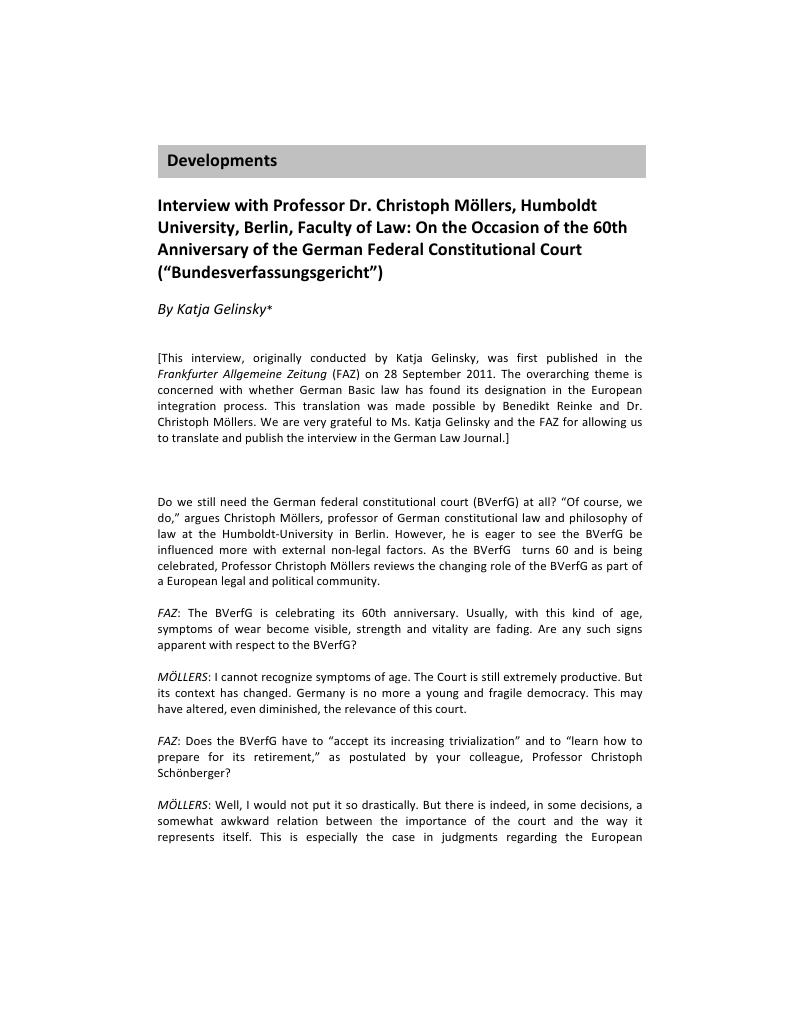No CrossRef data available.
Published online by Cambridge University Press: 06 March 2019

1 The judgment of the German federal constitutional court (BVerfG) on the European rescue package: BVerfG, Case No. 2 BvR 987/10, Sept. 7, 2011. The judgment in German is available at: http://www.bundesverfassungsgericht.de/entscheidungen/rs20110907_2bvr098710.html (last accessed: 23 December 2011). A press release provided by the German federal constitutional court on that judgment is available in English at: http://www.bundesverfassungsgericht.de/en/press/bvg11-055en.html (last accessed: 23 December 2011).Google Scholar
2 Judgment of the BVerfG, Case No. 2 BvR 2134/92, Oct. 12, 1993.Google Scholar
3 Judgment of the BVerfG, Case No. 2 BvE 2/08. Jun. 6, 2009. The German Law Journal published a special issue on the Lisbon judgment of the BVerfG. The full issue special issue (Vol. 10, No. 8) is available at: http://www.germanlawjournal.com/pdfs/FullIssues/Vol_10_No_08.pdf (last accessed: 23 December 2011).Google Scholar
4 In 1948 the Herrenchiemsee conference was assembled in order to discuss and draft a first version of a constitution for occupied Germany. The results of this conference were later used by the parliamentary council in Bonn to particularize the constitution. On May 8, 1949 the parliamentary council voted on and passed the German constitution (Grundgesetz), which was proclaimed on May 23, 1949.Google Scholar
5 The following representatives of the German Länder were the leading members of the Herrenchiemsee conference: Anton Pfeiffer (Chair), Paul Zürcher, Josef Schwalber, Theodor Spitta, Wilhelm Drexelius, Hermann Louis Brill, Justus Danckwerts, Theodor Kordt, Adolf Süsterhenn, Fritz Baade, Josef Beyerle, Carlo Schmid and Otto Suhr. Additionally, the listed members were supported by advising staff and legal experts.Google Scholar